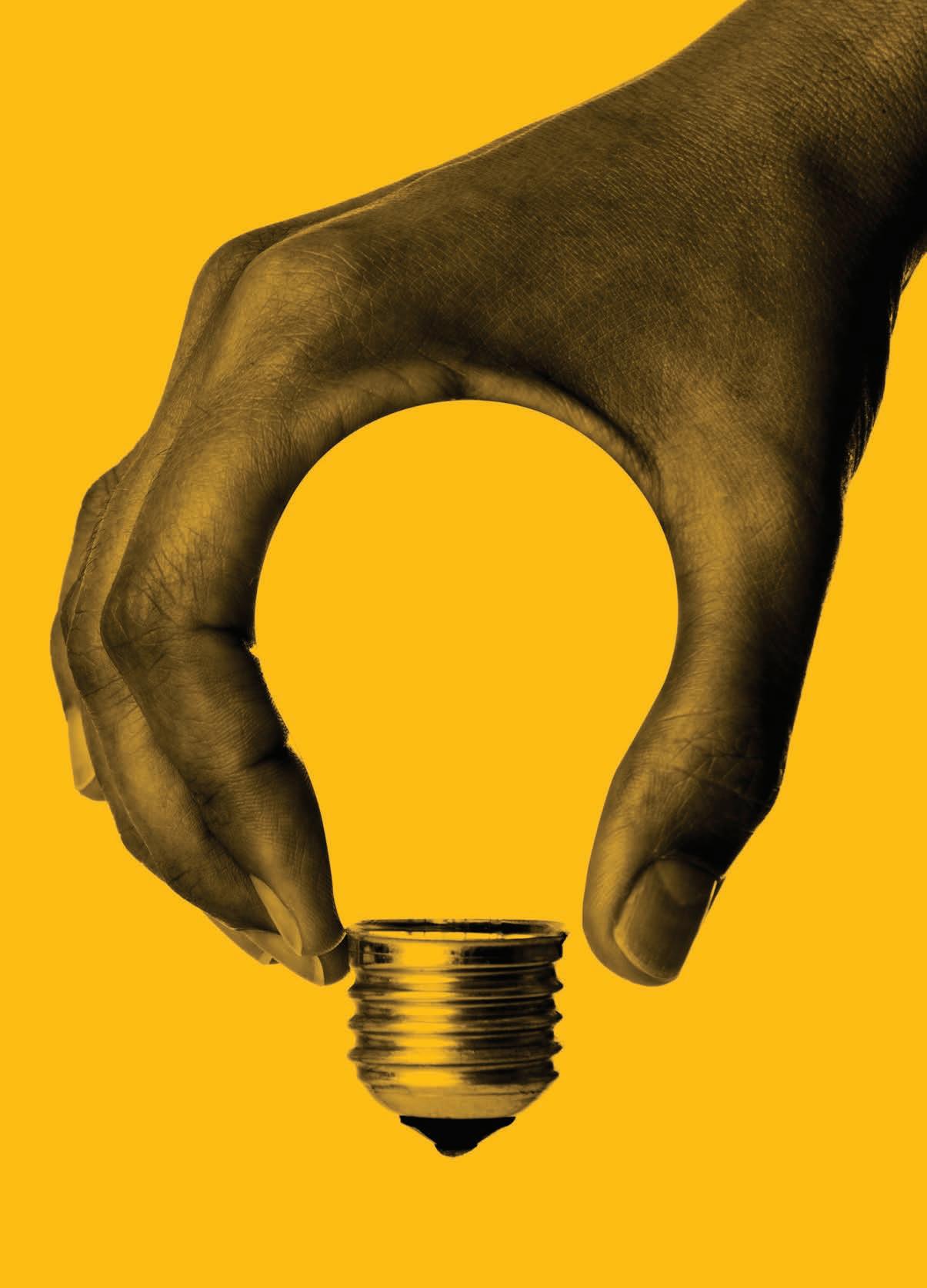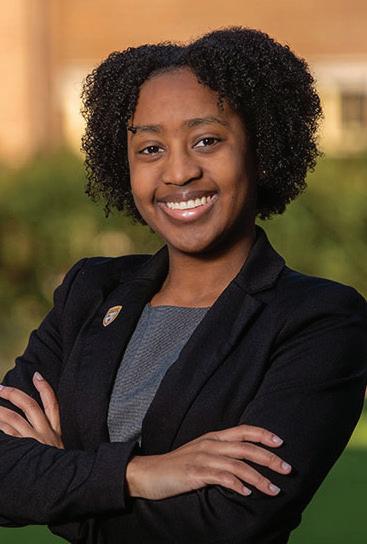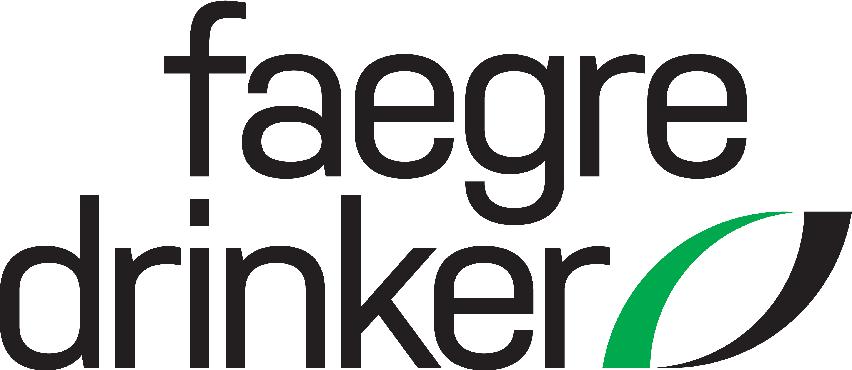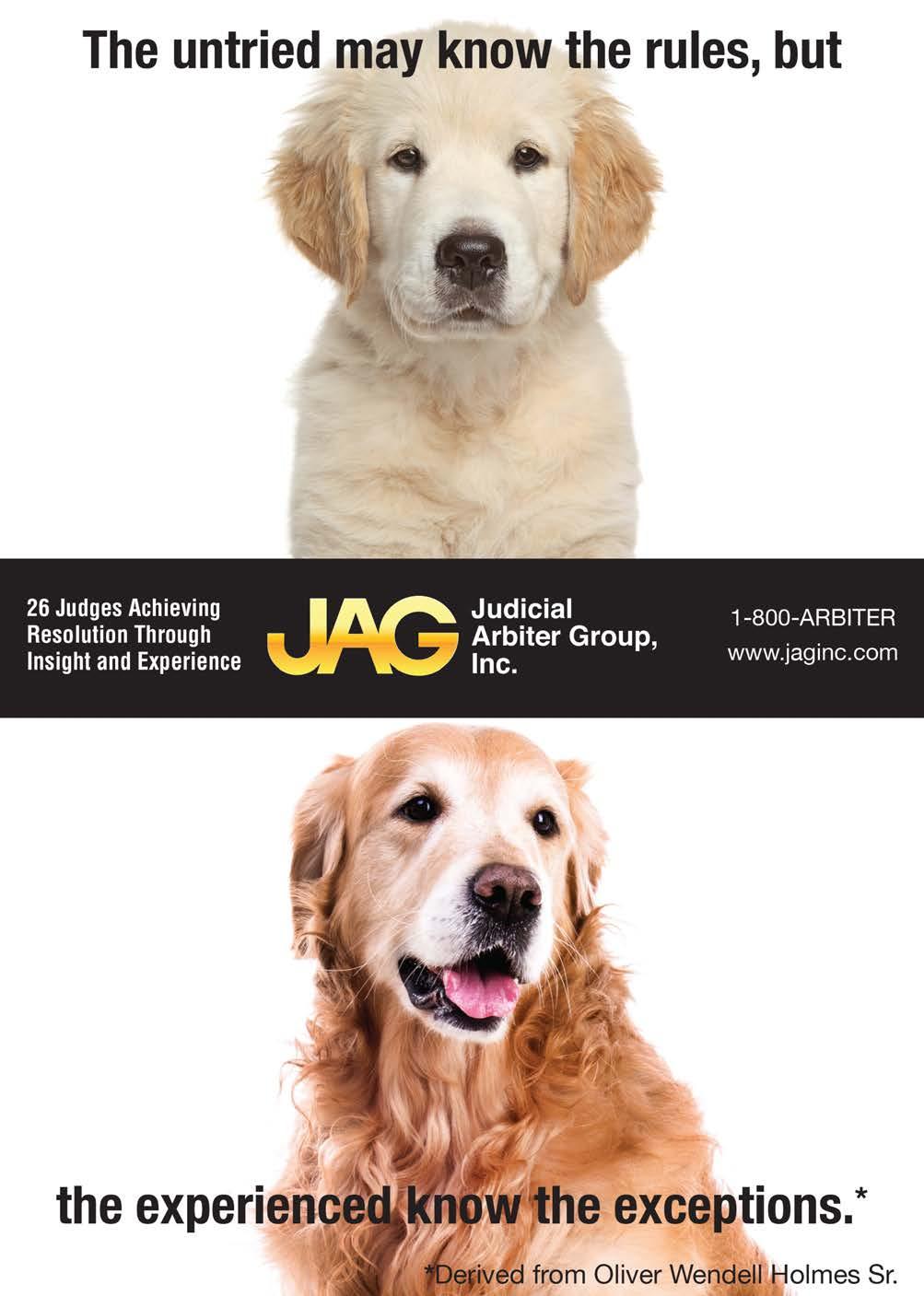
21 minute read
Character, Caricature and the Role of Creativity in Law
from The Docket
by DBA Docket
By Kehinde Winful
and the Role of Creativity in Law

“The lawyer is a user of words; but like all such people, he must use them in a world of unexpressed and inexpressible experience. The description of an event can go on forever and still be incomplete. What is said is only part of what happens.” —James Boyde White, Legal Imagination
The precise and technical nature of legal writing can not only be seen as an attack on creativity, but also an attack on character, for certain people. At first glance, legal writing and the concept of creativity seem completely incompatible. After all, legal writing is particular, it is technical, and it is predicated on structure. In contrast, creativity is un-mechanical, emotion-full, and often an expression of vulnerability. There is a similar incompatibility between the way the law speaks about people and who people really are. That incompatibility becomes evident when comparing the two modes the law uses to both talk about and engage with people: character and caricature. In his book Legal Imagination, James Boyde White writes that “character is the successful rendition of the personality: believable, full, complex, living and breathing.” Caricature, on the other hand is, “a way of talking about people that reduces them to single exaggerated aspects, to labels, roles, moments from their lives. It is narrow, two-dimensional, unconvincing.” Through the lens of character and caricature, we see just how the law’s legal language hinders creativity.
Creativity is a form of character. The Oxford English Dictionary defines creativity as, the use of skill and imagination to produce something new or to produce art. One way creativity is showcased is through musical expression. This paper is predominantly concerned with the hip-hop (rap) genre, as it is a genre made up primarily of black artists. A google search of “most popular music genre in 2021” will show you that hip-hop (rap) music was the most popular genre in 2020. The ‘R&B/ hip-hop’ category made up over a third of all plays according to Billboard. Despite being the most popular music genre in the world, it seems that the law does not always celebrate black creativity in the form of musical expression in hip-hop, as it does other genres of music. White’s framing of character would allow us to view hip-hop, as a form of personal expression and thus a rendition of personality. With that in mind, we must ask ourselves why this form of expression, part of the character of such artists, often finds itself in tension with the law. This tension comes from a legal system that punishes black artists’ use of creative expression, because of the legal system’s known history of engaging with black people as caricatures instead of characters.
The law has an inherent inability to engage with rappers as multifaceted individuals, due to its refusal to engage with character over caricature. This is because legal writing in its attempt to convert life into a single story made up of the elements of the crime is used to tell us all we need to know about the person involved (that is, whether they did the crime or not) makes everything else, the things that make up a person’s character, irrelevant. In the case of rap as creative expression, and thus a display of character, the result is a policing of black creativity in the legal system.
Black people are disproportionately burdened by the legal system. This is true even in the intersection of the law and music. White’s notion of caricature helps to understand why. The caricature of a person is an accumulation of flat characteristics, namely stereotypes and stock stories, that don’t tell much about a person beyond a singular moment in time. These stereotypes, cognizant or not, inform how the legal system interacts with black people. To see the direct link between such stereotypes and the detriment to creative expression of black artists, one has to look no further than to Maryland.
Provides financial assistance for “aged, infirm, or otherwise incapacitated lawyers who have practiced in Colorado for a minimum of ten years.”

Denver Bar Association Waterman Fund 1290 Broadway, Ste. 1700 | Denver, CO 80203 | 303-824-5319
denbar.org/members/waterman-fund
In Maryland, the state’s highest court recently held that rap lyrics could be introduced as admissible evidence against a defendant in a criminal proceeding. Luckily for artists here in Colorado we have no such law on the books. There, the court held that “rap lyric evidence has heightened probative value, and is admissible as substantive evidence of a defendant’s guilt, when the lyrics bear a close nexus to the details of an alleged crime.” The court reasoned this was because such lyrics make it more probable that the defendant committed the alleged crime. Such a holding illustrates the dangers of people’s experience, lived or imagined, being condensed to simple stock stories. To punish one genre and not others is to single out the experiences (an element of character) of black artists by labeling such experiences under a single story. The story being that, as rappers, their creative expression can be used against them in a criminal proceeding to prove the only thing the law is concerned about: that they are guilty of the accused crime.
The precision of legal language is a detriment to the creativity of a black rap artists, more so than their white counterparts in other genres. The precision of the word “rap” in the court’s holding is telling of many things, one of them being that this law will disproportionately affect back people. The use of the word “rap” illustrates with the law tries to hide, that it does not engage with every person in a an equal way. Here, the result is that some music, by the nature of the people creating the music is deemed to be evidence rather than a creative outlet. Other genres of music, specifically country and rock and roll, share similar themes of assault, drugs, and violence. The comparison is not to say that these themes should be “welcomed” by any means, but rather to show that if the courts want to use someone’s creative work against them all music should be subject to admissibility and not just rap music. In punishing the rap genre alone, courts assume the truth of such lyrics (disregarding the fact that such lyrics might be entirely made up , despite their closeness to real live events– or not) and then punish the creative pursuits of black artists. That is to say that rap artists, like their counterparts, use a mixture of both their lived experience and their creativity to inform their music.
In punishing creativity, by holding rap lyrics as admissible evidence, the law punishes the character of black artists. This raises the question of whether legal institutions are ever interested in who people really are. The short answer is maybe. White writes about the possibility of evil that can come from the use of a precise language to express precise ideas. Here, the precision of language showcased by the use of the word “rap” in the court’s holding may be one of those evils. For some people then, it seems that their creativity is incompatible with the technical nature of the legal language.
The truth is that holdings like the one in Maryland not only have creative implications for black rappers, but also disregard certain socio-economic truths. In Maryland people of color, and specifically black people, are overrepresented in prison and jails. In 2010, there were 1,437 black people incarcerated in Maryland for of every 100,000 people in that racial group. Brining these number and statistics closer to home, in the same year here in Colorado that number was almost triple at 3,651. These numbers are alarming, especially as it relates to Colorado as the most recent census showed that the racial composition of Colorado was only 4.6% Black or African American compared to 86.9% White. There is a parallel between the disproportionate number of incarcerated black people living in states like Maryland, and here, to the holding of the Maryland court that once again disproportionately affects black people. The parallel is that the law continues to have overwhelmingly adverse effects on black people.
In the end it seems that the law doesn’t fully embrace the true character of people very well, because of the incompatibility of creativity and legal language. A conclusion that becomes more evident with the emergence of laws that directly impact a predominantly black musical category. Caricature is the main mode of accepted expression for people’s identities, with the law showing little interest in any character’s “roundness.”
KEHINDE WINFUL is a third year law student at Colorado Law interested in litigation and appellate work. In her free time, Kehinde likes to walk, write, and listen to music.
To be announced in the next Docket, October 2021
DBA AWARDS
DBA Award Winners
Award of Merit, Barbara Chamberlain
In a year that has seen the passing of several titans of the Colorado legal community, I am beyond humbled to receive the Denver Bar Association Award of Merit. I was a small cog in that community. I became a lawyer to help people. The DBA afforded me that opportunity, through its Legal Services Committee and the Thursday Night Bar/ Metro Volunteer Lawyers programs. I got to help a lot of people, both directly and indirectly. I was also privileged to work with the good guys of the bench and bar, men and women who recognize the value of pro bono work and realize that it is good for clients, the courts, and themselves. My simple philosophy is that we are here on Earth to benefit the Earth and its denizens in some small way. I am so grateful to receive this award as an affirmation that I may have achieved that goal.
Volunteer Lawyer of the Year, Hannah Siegel Proff
It is a great honor to receive recognition from the Denver Bar Association for my volunteer work. Since graduating from law school 13 years ago, I have kept the words of one of my heroes, Toni Morrison, at the front of my mind. She said, “I tell my students, ‘When you get these jobs that you have been so brilliantly trained for, just remember that your real job is that if you are free, you need to free somebody else. If you have some power, then your job is to empower somebody else. This is not just a grab-bag candy game.’”
It is an immense privilege to hold a law degree. Through my volunteer work, I have the opportunity to advocate for clients who do not have the means to hire a lawyer and advance systemic policy changes in the Colorado General Assembly. My work would not be possible without the staff of the organizations I volunteer with. They deserve endless recognition for their dedication. This recognition from the DBA inspires me to do even more to support the people, causes, and organizations I believe in. Thank you to the DBA, and to the other lawyers and community members who work tirelessly alongside me.
Young Lawyers of the Year, Matt Broderick and Ruchi Kapoor
Broderick: I am honored and humbled to share this year’s DBA Young Lawyer of the Year Award with Ruchi Kapoor. Ms. Kapoor is a true servant of the DBA and an outstanding young attorney. I am also very appreciative to the DBA for awarding me with this honor and I am so grateful to the many, many individuals who have encouraged and supported my involvement in the DBA, especially with the Young Lawyers Division. I also have had the honor and privilege of working alongside excellent young attorneys on the DBA YLD Executive Council over the last several years. The CLEs, networking events, fundraisers, business development programs, and many other activities planned and hosted by the DBA YLD would never have occurred without the countless hours and meaningful efforts of our DBA YLD Executive Council members. I truly believe all of those members could have been named Young Lawyer of the Year and I hope they view this year’s award as shared with them all. Volunteering for a great organization like the DBA takes the support of family, and I never could have reached this goal without the love and support of my wife, Heather. Kapoor: Thank you to the DBA for honoring me as Young Lawyer of the Year — it is humbling to be recognized by this amazing institution of colleagues and peers. This last year of working from home has reinforced how important my bar association friendships are, and how much I look forward to these face-to-face connections! I am grateful this year has given me the chance to spread my wings into private practice and I am grateful that I was still able to lean on many of the connections at the bar association as I did so. I look forward to the next year as we continue to build the bar into the place we’d all like it to be.
Judicial Excellence, Judge Theresa Spahn
I have been a proud member of the CBA/ DBA and/or Ad ams-Broomfield Bar Association since 1988. The DBA, or as I fondly call it, my bar association, has been instrumental in supporting me throughout my career. Membership has provided me the opportunity to develop treasured and long-standing friendships, learn how to be a compassionate and effective leader, and participate in numerous initiatives that positively impact communities in our state, advance justice, and protect the independence of our judiciary. Most importantly, it has brought me great joy to be a part of something that provides a true community to attorneys who practice in Colorado. The DBA creates an environment where we can step outside our attorney/advocacy roles and share common values and vision. It has never been so important to nurture this sense of community and foster these relationships. I’m truly honored and humbled to receive the 2021 Judicial Excellence
Award from an organization that I so deeply respect and has been a pillar for me the past 33 years.
Toni-Anne Nuñez, Director of MVL
Anthony Pereira, Program Coordinator Metro Volunteer Lawyers is deeply honored for the Family Law Unbundled Program to be named the DBA’s Outstanding Program of the Year. The Family Law Unbundled Program began in November 2019 thanks to a generous grant provided by Jerry Conover. Since its founding, over 50 different volunteer attorneys have helped or are helping over 300 families. While it started as a pilot program in Denver and Jefferson counties, it quickly expanded to serving all the counties MVL serves (Adams, Broomfield, Douglas, Elbert, Denver, and Jefferson).
The Family Law Unbundled Program enhances MVL’s mission to bridge the gap in access to justice by coordinating the provision of pro bono legal services by volunteer lawyers to families who could not otherwise afford legal services. In addition to serving families in need, MVL provides micro-volunteer opportunities to attorneys.
These pro bono opportunities include remote clinics, in-person programing, individually scheduled phone meetings, or pro bono mediation. Volunteers provide a one-time consultation, where they help draft motions, prepare for upcoming hearings, and give advice about next steps in a case. This program emphasizes and focuses on early resolution, including our expanded mediation program.
The program responded to COVID by changing from in-person meetings to telephone consultations and remote Zoom clinics.
Family Law Unbundled is only as good as its volunteers. Please sign up to volunteer today. Check out our website for more information: denbar.org/mvl. Or watch this video for more information about the program: youtube.com/ watch?v=s1_EgB4ZKZk
DAVIS AW RD
NOMINATIONS SOUGHT DEADLINE SEPT. 1
Nominations are invited for the 2021 Richard Marden Davis Award to honor attorneys under the age of 40 who have demonstrated excellence as a lawyer and leadership in Denver’s civic, educational, and charitable activities. The award was established by Davis Graham & Stubbs, the family of Dick Davis, and the Denver Bar Foundation in 1992.
Visit bit.ly/3gzAiQk for more information about the award, a list of past recipients and to submit a nomination.
YOUNG LAWYERS DIVISION
Q&A
Jessica Cordero
Please tell us a little about yourself, personally and professionally.
My name is Jessica Isabel Cordero, Esq. I am a first-generation Hispanic college and legal graduate. After working in Big Law, I discovered my passion for building bridges between majority groups and underrepresented diverse communities. Therefore, I started a diversity, equity, and inclusion consulting firm at JCordero Consulting Solutions, LLC. At JCCS, I partner with organizations and professionals as they navigate moral and ethical challenges, manage stress, and overcome communication barriers to build better and more sustainable practices.
I am also a board member at the Colorado Hispanic Bar Association Foundation and a mentorship, C-PTSD, and LQBTQ+ advocate.
What has been one of your most memorable DBA experiences?
As the first person in my family to enter the legal field, or any professional field for that matter, I was overwhelmed and fearful of joining the legal community. During my first year of law school, I attended a DBA mixer to face these fears and break the ice. As soon as the DBA-YLD members struck up a conversation with me, all of my initial fears dissipated. It was the first time I thought that I could actually be a part of this community, that I could add value and belong somewhere. It was truly a memorable experience.
What is the best advice you’ve ever received?
“Win or lose, you only fail when you stop trying.” As a recovering perfectionist, I
perceived any loss, critique, and criticism as a complete failure. However, this advice helped me see that any perceived loss was actually a lesson, which in turn, is a gain.
Josh Mangiagli
Please tell us a little about yourself, personally and professionally.
I grew up in Denver and graduated from Denver East High School before going to college at the University of Vermont where I studied political science. After college, I moved to New Orleans to teach middle school social studies, and met my wife, Hilary (who taught in the classroom next to mine). We have two kids — Theo and Lark.
In 2018, I graduated from the University of Denver Sturm College of Law. I am now an attorney at Alderman Bernstein where my practice focuses on eminent domain law, real estate litigation, and real estate transactions.
What has been one of your most memorable DBA experiences?
My most memorable DBA experience was participating in the 2020 Roll Out the Barrels campaign to help raise money for Metro Caring. It was incredible to see law firms across Denver come together to help end hunger in the Denver metro area. It was also my first experience volunteering as an attorney and helped me realize the many ways attorneys can have a positive impact in their community.
What is the best advice you’ve ever received?
Treat others the way you want to be treated.
Marika Rietsema Ball
Please tell us a little about yourself, personally and professionally.
I practice in corporate, securities, and business transactions, as well as trusts and estates law at Jones & Keller, P.C. I’m a 2018 graduate of the University of Denver Sturm College of Law. I also serve as the chair-elect of the Center for Legal Inclusiveness’ YLD, co-treasurer of the Colorado Pledge to Diversity, and as a member of the planning committee for the Colorado Diverse Attorney Community Circle program. If I weren’t a lawyer, I would be a lighthouse keeper. My favorite hobbies are hiking, knitting, and hanging out with my husband, Mike, and my dog, George.
What has been one of your most memorable DBA experiences?
Before becoming actively involved with the DBA, I was lucky enough to collaborate with the executive committee of the DBA YLD on a virtual event called the Jeffersonian Dinner. The executive committee members were extremely inclusive and wonderful to work with. It truly showed me the heart of the DBA YLD and their commitment to the Denver legal community. It made me want to be a part of their organization.
What is the best advice you’ve ever received?
Collect a board of directors — these are your professional mentors and peers who help guide you through your career decisions. My BOD has been the best thing to happen to my career and I attribute much of my success to their guidance.
Jessica Dowty
Please tell us a little about yourself, personally and professionally.
I am originally from Kansas City and come from a very large, blended family with 12 kids. I received my undergraduate degree in finance and marketing from NYU, and my J.D. and LL.M in taxation from the University of Missouri-Kansas City. After working for an aviation law firm for a few years in KC, I joined Kutak Rock in the Tax Credits Group in Denver. I enjoy hiking with my husband and two dogs whenever we get the chance, travelling and exploring new places, and spending time with our family and friends.
What has been one of your most memorable DBA experiences?
As someone that moved to Denver in July 2019 as a lateral transfer to a new firm, I haven’t had much opportunity at this point to be a part of the DBA, but that was one of the main reasons I wanted to join the YLD Executive Board. I love meeting new people, and I figured this would be a great way to get involved with the Denver legal community and make new connections.
What is the best advice you’ve ever received?
This is a hard one. I have had so many supportive mentors throughout my life, and I feel like I have gained valuable advice that has helped me shape my life and my goals from each and every one of them. I think some advice that I try to live by is to focus on the positives. Things are not always easy, but if you keep a positive mindset and look for the solution instead of focusing on the weight of the problem, then you can find a way to move forward.
Want to find out more about the DBA YLD? Visit DBAYounglawers.com for details on how to get involved and upcoming events. You can also reach out to Elizabeth Akalin at eakalin@ cobar.org.
10 QUESTIONS

Essence Duncan
1L at CU Law
EDITOR'S NOTE Do you know a DBA member who should be featured?
Email nominations to Heather Folker at hfolker@cobar.org.
10 Questions with Essence Duncan
1. Where did you go to law school and where are you currently working?
I am a current 1L at CU Law. My current work involves volunteering with the Korey Wise Innocence Project.
2. Why did you become a lawyer?
I want to become a lawyer because I want to make a difference. There is a lot of work to be done in the justice system and I want to be a part of that work and future change.
3. Where are your favorite places to travel?
My favorite place to travel is anywhere tropical, I am a proud Floridian so I thrive in the sunshine and on the seashore.
4. Are you currently binge watching any shows?
I just started Game of Thrones and it is very interesting! Never knew there was so much drama in kingdoms.
5. How do you de-stress?
Yoga is my favorite way to de-stress; it truly helps me to connect to a peaceful place and be focused on relaxation in those moments.
6. What is your favorite book or movie?
My favorite movie is Who Framed Roger Rabbit.
7. If you could have dinner with any historical figure, who would you pick and why?
Ruby Bridges. While being the only Black girl in my elementary school class, she inspired me to keep my head held high and remember I am deserving of education despite the color of my skin.
8. What is one item from your bucket list?
To spend my honeymoon in Santorini, Greece — first I will have to find a potential spouse.
9. If you could instantly implement any law, what would it be?
I would impose a law that fully funds and requires therapy services at various stages of life. During early childhood, puberty, senior year of high school, four years post high school, and each decade after that. While that sounds extensive, until people take the chance to truly evaluate their lives and obstacles thus far it will be an uphill battle to self-love and content.
10. If you weren’t a lawyer, you’d be…? A therapist for a juvenile detention center.













